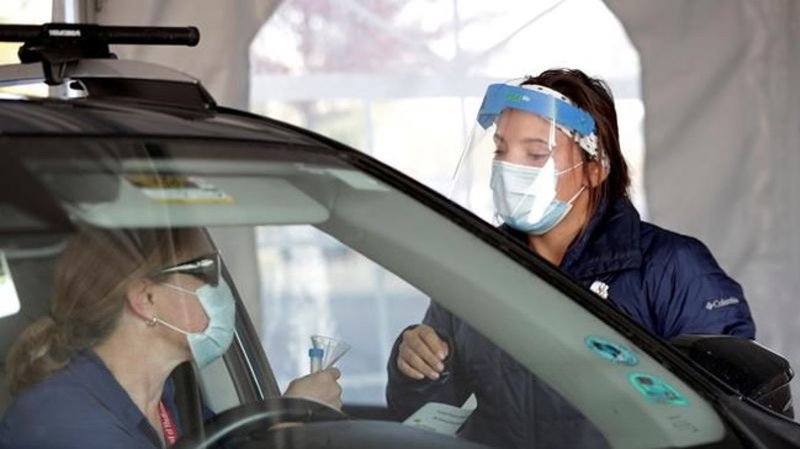
Tensions rise as virus cases surge in Wisconsin, Dakotas
SIOUX FALLS, S.D. — A surge of coronavirus cases in Wisconsin and the Dakotas is forcing a scramble for hospital beds and raising political tensions, as the Upper Midwest and Plains emerge as one of the nation’s most troubling hot spots.
The three states now lead all others in new cases per capita, after months in which many politicians and residents shunned mask requirements while downplaying the risks of the disease that has now killed over 210,000 Americans.
“It’s an emotional roller coaster,” said Melissa Resch, a nurse at Wisconsin’s Aspirus Wausau Hospital, which is working to add beds and reassign staff to keep up with a rising caseload of virus patients, many gravely ill.
“Just yesterday I had a patient say, ’It’s OK, you guys took good care of me, but it’s OK to let me go,’” Resch said. “I’ve cried with the respiratory unit, I’ve cried with managers. I cry at home. I’ve seen nurses crying openly in the hallway.”
